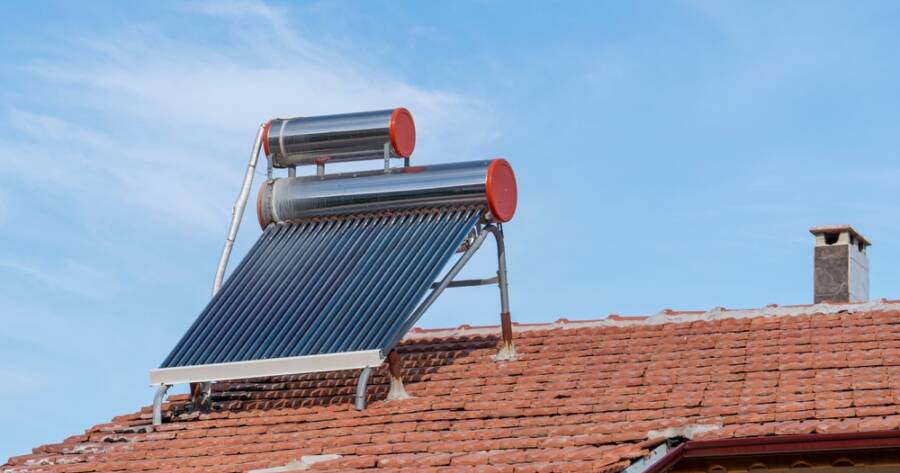As energy costs rise and environmental concerns grow, more homeowners are exploring ways to reduce their carbon footprint and save on utility bills. Solar water heaters present a practical solution that harnesses renewable energy to heat water for household use. If you’re considering upgrading your water heating system, this article will delve into the key reasons why a solar water heater might be a smart investment in 2025.
How Does a Solar Water Heater Work?
A solar water heater uses the sun’s energy to heat water through a system of solar collectors and storage tanks. Depending on the design, these systems can function in all climates, though performance may vary.
Active systems use pumps and controls, while passive systems rely on natural convection. By relying on sunlight, they can significantly reduce or even eliminate the need for traditional water heating methods, such as gas or electric.
Benefits of Installing a Solar Water Heater
Environmental Advantages
One of the most compelling reasons to install a solar water heater is its potential environmental impact. Solar energy is renewable and abundant, and by utilizing it, households can reduce their reliance on fossil fuels. This shift could result in a notable decrease in greenhouse gas emissions, contributing to a cleaner, healthier planet. However, the extent of these benefits depends on factors such as local climate and system efficiency.
Financial Savings
While the upfront cost of installing a solar water heater can be substantial, many homeowners may recoup these expenses over time through lower utility bills. The exact savings will vary based on energy costs in your area and your household’s water usage. Some regions also offer tax credits, rebates, or incentives that can make the initial investment more manageable.
Energy Independence
A solar water heater provides an opportunity to reduce dependence on traditional energy sources, which can be subject to price volatility and supply disruptions. By generating your own hot water using sunlight, you gain a degree of energy independence. While you may still require a backup system, especially in colder months, the reliance on external energy sources can be minimized.
Key Considerations Before Installation
Location and Climate
The effectiveness of a solar water heater largely depends on your location and the amount of sunlight your property receives. If you live in an area with abundant sunshine year-round, you’re likely to benefit more. That said, even in less sunny climates, modern systems can still offer significant advantages when properly designed and installed.
System Costs and Maintenance
The initial investment for a solar water heater can range from several thousand dollars to higher-end systems costing even more. It’s essential to factor in installation costs and any required structural modifications to your roof. Additionally, maintenance is minimal but not negligible—regular inspections and occasional repairs may be needed to ensure optimal performance.
Backup Systems
Solar water heaters typically include a backup system to ensure hot water availability during cloudy days or periods of high demand. These backups often rely on electricity or gas, which means some ongoing utility costs may still apply. Choosing the right backup system for your needs is crucial to achieving both comfort and efficiency.
Steps to Install a Solar Water Heater
- Assess your property: Consult a professional to determine whether your home is suitable for a solar water heating system. Factors like roof orientation, shading, and structural integrity will be assessed.
- Choose the right system: Select a solar water heater that aligns with your household’s hot water needs, climate conditions, and budget.
- Research incentives: Look into federal, state, or local incentives that can offset installation costs.
- Hire a qualified installer: Work with an experienced contractor who specializes in solar energy systems to ensure proper installation.
- Schedule maintenance: Establish a routine maintenance schedule to keep your system running efficiently.
Challenges and Potential Limitations
While solar water heaters offer numerous advantages, there are potential challenges to consider. Installation can be costly, and the system’s performance is weather-dependent.
Additionally, if your home requires structural modifications to accommodate the system, this can add complexity and expense to the project. For some, these factors may mean the benefits are less immediately tangible.
Learn More Today!
In 2025, transitioning to a solar water heater could be a thoughtful way to reduce your environmental impact and take control of your energy expenses. While the initial investment requires careful planning, the long-term benefits—including potential cost savings, reduced carbon emissions, and energy independence—make it a worthy consideration.
By evaluating your property’s suitability, understanding the associated costs, and seeking professional guidance, you can determine if this sustainable solution aligns with your household’s goals. As with any major home upgrade, thorough research and planning will help ensure you make an informed decision.
